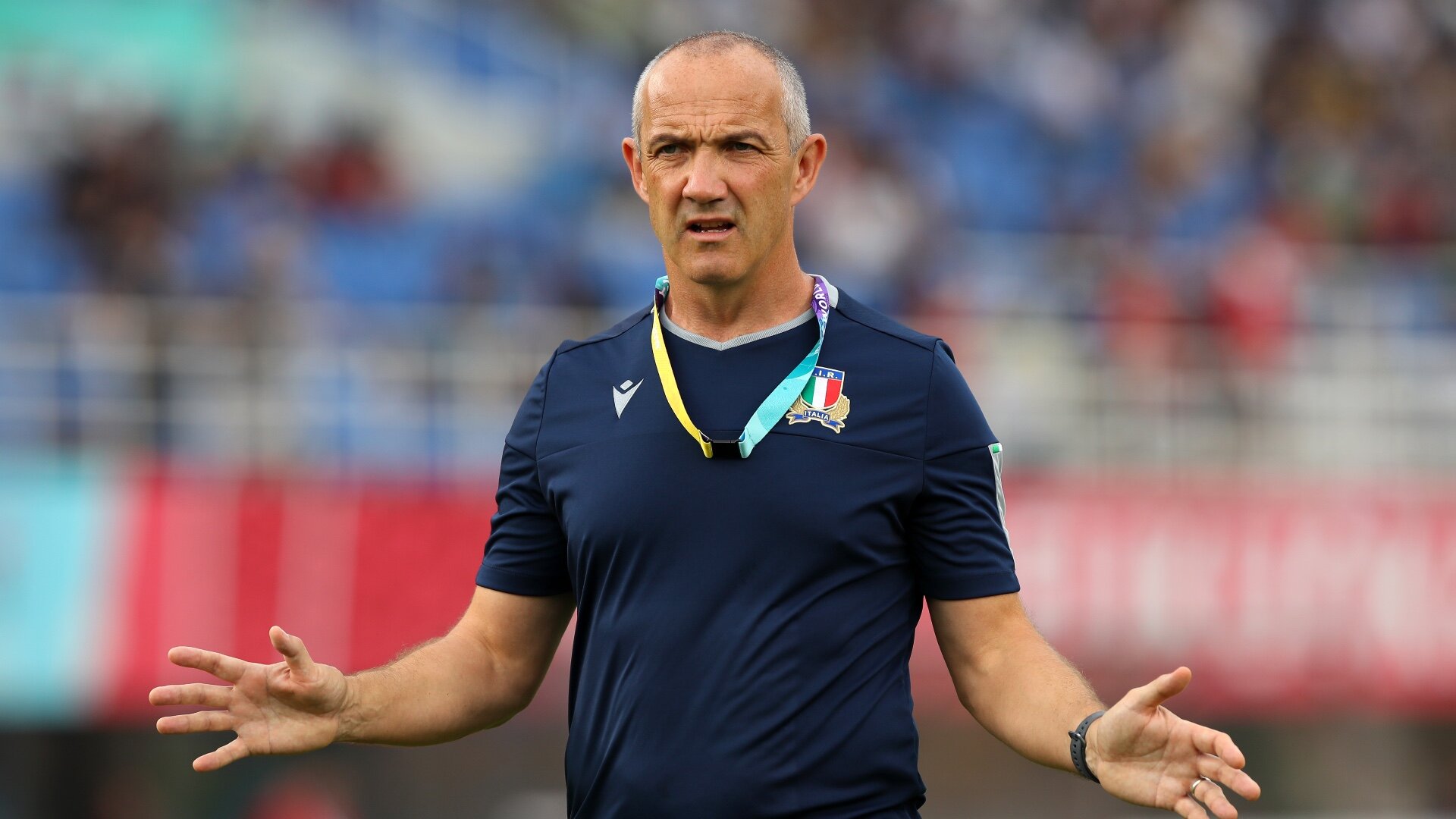Nigel Melville's exit sees the RFU tweak job title and appoint Conor O'Shea

Conor O’Shea is joining the Rugby Football Union (RFU) in 2020 as director of performance. O’Shea will be responsible for the leadership, management and strategic direction of the professional game in England.
With the aim to support long-term sustainable success at international level, the 49-year-old will manage the England player, coaching and match officials pathways across men’s and women’s 15s and sevens programmes.
The role, reporting to CEO Bill Sweeney, will also oversee performance rugby operations which include the management around the professional game agreement, Greene King IPA Championship, Tyrrells Premier 15s, Rugby Players Association, medical governance and player welfare, sports science, anti-doping and competition frameworks.
He will work closely with England men’s head coach Eddie Jones, but the England team remains the responsibility of Jones who will continue to report directly to Sweeney.
O’Shea resigned this month as head coach of the Italy men’s team having coached the national side since 2016. The former Ireland international was previously director of rugby at Harlequins, the 2012 Premiership champions.
(Continue reading below…)
He previously worked at the RFU as director of regional academies between 2005 and 2008 before joining the English Institute of Sport as national director for two years where he strategically influenced the sports science and medicine service offerings to Olympic and non-Olympic sports.
O’Shea said: “I’m privileged and honoured and it’s an incredible opportunity to join at a really exciting time for English rugby.
“I’ve spent the last four years in Italy, six years at Harlequins and before that 10 years at London Irish, so I feel I know the system pretty well. The good times, the bad times, winning things and being competitive, so I can relate to the people and challenges that happen within our system. I have learned a huge amount internationally in the last few years as well.
It's all over for Irishman Conor O'Shea and his tenure in charge of the Azzurri https://t.co/OmZtLnO3Dp
— RugbyPass (@RugbyPass) November 16, 2019
“There is an exciting vision at the RFU. It is not just about winning tomorrow, but also about sustaining success and winning long into the future. We can really look forward to rejuvenating and re-energising the performance pathway to help, support and push England rugby on. As well as our relationships with all stakeholders, it’s about women’s rugby, sevens, referees and coach development, which is absolutely fundamental.
“There has been some fantastic work done over a long period of time in these areas and there have been some challenges for various reasons as well. Now hopefully there is an opportunity to have stability, with the ability to invest and really push forward and challenge ourselves to become better. We are here to provide a sustainable winning environment and I hope I can play my part in creating that.”
Sweeney said: “Conor comes here with existing knowledge of how we operate. He has a good rounded balance of what it takes to be part of a high-performance system and he understands the world of the Premiership and the Six Nations so all of those are important credentials for us. His principle focus will be rebuilding the performance pathway and the coach development side.
“It is a wide-ranging role. We have our role to play in Team GB and the Olympics in Tokyo and the women’s game continues to go from strength-to-strength. He is responsible for making sure we continue that growth and we have a really good strategy in place for how we will compete in the women’s game at the highest level.
“Conor knows Eddie Jones very well and will be able to integrate with what is happening at the highest level on the elite side of our game and making sure we have a seamless approach to player and coach development will be key. He will also work closely with Premiership Rugby and the clubs to make sure we have the right relationships with them.
“There is a lot happening. We are just coming off a very successful Rugby World Cup, the youngest-ever team to compete in a World Cup final so it bodes really well for us going forward. We are looking forward to the Guinness Six Nations coming up now but that is part of a longer journey through to France in 2023. We look at that and the experience of Japan and that is something we can really build on.”
The personal wealth of professional rugby players is widely misunderstood.
– @Jbeardmore explains the unique set of financial circumstances that many find themselves in ???https://t.co/XdJKx5Q8wG
— RugbyPass (@RugbyPass) November 28, 2019
O’Shea’s arrival coincides with the departure of professional rugby director Nigel Melville, who wishes to pursue new opportunities.
Since joining in July 2016, Melville has led the professional rugby department and played a pivotal role in the development of the partnership with Premier Rugby and development of the England men’s and women’s sevens and fifteens teams. In addition, he acted as interim CEO in the first half of 2019 ahead of the arrival of Sweeney as CEO.
“I’m proud of all that the organisation has achieved over the last three years during some challenging times,” said Melville. “I believe that England Rugby is in a great place and that leaving after the 2019 World Cup is the right time as the RFU start a new era and prepare for the next World Cup cycle.”
WATCH: Dylan Hartley has revealed what it was like to captain England under Eddie Jones





































